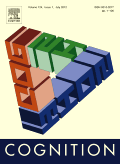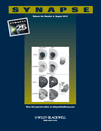
LEARNING & BEHAVIOR
Scope & Guideline
Advancing Insights in Learning and Behavior
Introduction
Aims and Scopes
- Comparative Cognition:
Research focusing on the cognitive abilities of different species, comparing learning mechanisms, memory systems, and problem-solving strategies. - Animal Learning Mechanisms:
Investigating the underlying processes of learning, such as conditioning, reinforcement, and observational learning across various animal models. - Developmental Psychology:
Exploring how learning and behavior develop over the lifespan in both human and non-human animals, particularly in relation to environmental influences. - Social Learning and Behavior:
Examining how social dynamics influence learning and behavior, including the transmission of knowledge and skills among individuals within species. - Neuroecology and Behavioral Ecology:
Studying the relationship between learning processes and ecological factors, including how environmental challenges shape cognitive adaptations in different species. - Episodic Memory and Future Thinking:
Research into the capacity for episodic-like memory and future planning in non-human animals, contributing to the understanding of cognition beyond humans.
Trending and Emerging
- Episodic Memory and Future Thinking:
An increasing focus on understanding episodic memory and its implications for future thinking in non-human animals, expanding the discourse on cognitive capabilities beyond traditional perspectives. - Cognitive Flexibility and Problem Solving:
Research emphasizing cognitive flexibility, the ability to adapt behavior in response to changing environments or rules, is becoming more prevalent, showcasing the adaptability of learning in various contexts. - Social Cognition and Communication:
There is a growing interest in social cognition, including how animals engage in cooperative behaviors, communicate, and learn from social interactions, highlighting the importance of social structures in learning. - Neuroscience of Learning:
An emerging trend involves integrating neuroscience with behavioral studies, exploring the neural bases of learning and memory, which may lead to deeper insights into cognitive processes across species. - Impact of Environmental Context on Learning:
Research increasingly acknowledges the role of ecological and environmental contexts in shaping learning and behavior, reflecting a holistic approach to understanding cognitive processes.
Declining or Waning
- Traditional Conditioning Studies:
There is a noticeable decrease in studies solely focused on classical and operant conditioning paradigms, suggesting a shift towards more complex learning phenomena. - Species-Specific Learning Comparisons:
Research specifically comparing learning abilities across a narrow range of species appears to be less common, indicating a broader focus on cognitive processes rather than strict comparative studies. - Behavioral Genetics:
The exploration of genetic influences on learning and behavior has seen a decline, possibly as the focus shifts to more integrative approaches that combine behavioral, ecological, and cognitive perspectives. - Simplistic Learning Models:
There is a reduction in the use of overly simplistic models of learning that do not account for the complexity of cognitive processes, reflecting a trend towards more nuanced and multifaceted approaches.
Similar Journals

Cognitive Neurodynamics
Innovative Insights into Cognitive Processes.Cognitive Neurodynamics is a leading journal in the field of cognitive neuroscience, published by Springer in the Netherlands. With an ISSN of 1871-4080 and an E-ISSN of 1871-4099, this journal has established itself as a prominent platform for innovative research from its inception in 2007, continuing to enrich the academic landscape through 2024. Recognized for its significant contributions, Cognitive Neurodynamics holds a Q2 quartile ranking in cognitive neuroscience and impressively ranks #27 out of 115 in the Scopus database, placing it in the 76th percentile among its peers. While the journal is not open access, it offers a wealth of studies focusing on the intricate dynamics of cognitive processes and neurobiological mechanisms, making it essential reading for researchers, professionals, and students alike. Its objective is to bridge the gap between theoretical insights and practical applications, fostering a deeper understanding of cognition through multidisciplinary approaches. Explore the latest advancements in cognitive dynamics and contribute to the evolving dialogue within this fascinating field.

Wiley Interdisciplinary Reviews-Cognitive Science
Bridging disciplines for deeper cognitive understanding.Wiley Interdisciplinary Reviews-Cognitive Science (ISSN: 1939-5078, E-ISSN: 1939-5086), published by WILEY, stands as a premier academic journal dedicated to advancing the understanding of cognitive science through an interdisciplinary approach. Since its inception in 2010, the journal has rapidly established itself as a leading source of knowledge, achieving a Q1 ranking in the 2023 category of Medicine, Neuroscience, and Psychology, underscoring its significant impact within these fields. With a Scopus ranking of #27 in General Psychology and #30 in General Neuroscience, it offers researchers, professionals, and students access to cutting-edge research that bridges various disciplines, fostering collaboration and innovation. Though not openly accessible, this journal is critical for those aiming to stay at the forefront of cognitive science research, providing comprehensive reviews that synthesize emerging findings and highlight future directions for study.

Behavioral and Brain Functions
Shaping the Future of Neuroscientific InquiryBehavioral and Brain Functions is a leading Open Access journal published by BMC, dedicated to advancing the field of behavioral neuroscience, cognitive neuroscience, and biological psychiatry since its inception in 2005. This esteemed journal, based in the United Kingdom, has established itself as a vital resource for researchers and professionals, boasting a remarkable influence demonstrated by its Q1 and Q2 rankings across multiple relevant categories. With its commitment to providing unrestricted access to high-quality research, the journal facilitates the dissemination of significant findings in understanding the complex interactions between behavior and brain function. The journal ranks impressively within the Scopus database, positioning itself among the top-tier publications in its categories, making it an essential platform for academic discourse and innovation. As it converges through 2024, Behavioral and Brain Functions continues to play a crucial role in shaping the forefront of neuroscientific inquiry, inviting contributions that challenge our understanding and promote further exploration in these dynamic fields.

COGNITIVE AFFECTIVE & BEHAVIORAL NEUROSCIENCE
Innovating Research: Delving into the Dynamics of Cognition and EmotionCOGNITIVE AFFECTIVE & BEHAVIORAL NEUROSCIENCE (ISSN: 1530-7026, E-ISSN: 1531-135X) is an esteemed journal published by SPRINGER that aims to advance the understanding of the interplay between cognitive processes, affective states, and behavioral responses in the field of neuroscience. Established in 2001, the journal provides a rigorous platform for disseminating high-quality research, with a significant focus on both Behavioral Neuroscience and Cognitive Neuroscience. Classified in Q1 and Q2 quartiles for 2023, it ranks highly within its categories, holding positions of #37 out of 88 and #46 out of 115 respectively in the Scopus listings. Although not an open-access publication, readers can access a wealth of valuable insights and innovative findings that enrich the scientific community's understanding of brain function and behavior. The journal's emphasis on interdisciplinary research contributes to its esteemed reputation, making it a vital resource for students, researchers, and professionals striving to explore the complex nature of the human mind and behavior.

BEHAVIORAL ECOLOGY AND SOCIOBIOLOGY
Decoding the Secrets of Social Structures and Ecological FactorsBehavioral Ecology and Sociobiology is a peer-reviewed journal published by Springer, focusing on the nuanced interactions between animal behavior and ecological factors. With an impressive history dating back to 1976, the journal has made significant contributions to the field, maintaining a prominent position in the top quartile (Q1) for both Animal Science and Zoology, as well as Ecology, Evolution, Behavior, and Systematics, as of 2023. Its high Scopus rank underscores its influence, being recognized in the 79th percentile for Animal Science and the 68th percentile for Ecology. This journal serves as an essential platform for researchers, professionals, and students interested in exploring the evolutionary implications of social structures and behavioral traits in various species. Although it does not currently operate under an open-access model, its rigorous peer-review process ensures that published studies meet high academic standards. With a vast array of innovative articles spanning decades, Behavioral Ecology and Sociobiology remains a vital resource for advancing our understanding of the complex interplay between behavior and ecological dynamics.

BRAIN BEHAVIOR AND EVOLUTION
Charting the Evolutionary Landscape of BehaviorBRAIN BEHAVIOR AND EVOLUTION, with ISSN 0006-8977 and E-ISSN 1421-9743, is a prominent journal dedicated to the intricate connections between brain function, behavior, and evolutionary processes. Published by KARGER in Switzerland, this journal has established itself as a crucial resource in the fields of Behavioral Neuroscience and Developmental Neuroscience, evidenced by its respectable 2023 category quartiles of Q2 and Q3, respectively. With a rich publication history spanning from 1968 to 2024, BRAIN BEHAVIOR AND EVOLUTION presents original research articles, reviews, and theoretical contributions that investigate the biological underpinnings of behavior, making it an essential platform for researchers, professionals, and students committed to advancing our understanding of neurobiological and evolutionary mechanisms. Although it is not an open-access journal, its rigorous peer-review process ensures that only high-quality research is disseminated, maintaining the journal's impact in the academic community.

Cognition
Fostering Interdisciplinary Collaboration in CognitionCognition, published by Elsevier, is a leading journal dedicated to the exploration and advancement of knowledge in the multifaceted fields of cognitive neuroscience, cognitive psychology, and linguistics. Since its inception in 1972, this prestigious journal has established itself as a prominent platform for disseminating innovative research and critical reviews, achieving a remarkable Q1 ranking across various relevant categories, including Cognitive Neuroscience and Developmental Psychology, as per the 2023 metrics. With a focus on providing insights that are vital for researchers, professionals, and students alike, Cognition boasts an impressive standing in the academic community, evidenced by its high Scopus rankings which place it in the top percentiles in several disciplines. Researchers interested in the cognitive processes underlying human thought, language, and behavior will find Cognition an invaluable resource that publishes cutting-edge findings and fosters interdisciplinary collaboration. Though it operates under a traditional access model, the breadth and depth of its content ensure it remains integral to advancing cognitive science.

Journal of Cultural Cognitive Science
Cultivating Knowledge at the Intersection of Culture and CognitionThe Journal of Cultural Cognitive Science, published by SpringerNature, is an esteemed forum for researchers and scholars dedicated to exploring the intersection of culture, cognition, and language. With its ISSN 2520-100X and E-ISSN 2520-1018, this journal has made significant strides since its inception in 2017, covering a wide array of topics pertinent to Experimental and Cognitive Psychology and Linguistics and Language. Notably, it has achieved remarkable recognition, ranking in the Q3 category for Experimental and Cognitive Psychology and Q1 for Linguistics and Language in 2023. Its Scopus ranks further illustrate its impact, with the journal positioned at the 89th percentile in Social Sciences - Linguistics and Language and 47th percentile in Psychology. Despite its ongoing journey, it continues to foster open dialogue and innovation among professionals, researchers, and students, providing valuable insights and advancing knowledge in the field.

SYNAPSE
Fostering Innovation in Neuroscience ResearchSYNAPSE, an esteemed journal in the field of Cellular and Molecular Neuroscience, is published by Wiley and serves as a vital platform for disseminating groundbreaking research in neuroscience. Established in 1987, this journal has been pivotal in exploring the intricate mechanisms governing synaptic function and neural communication, contributing to our understanding of the nervous system. With an ISSN of 0887-4476 and an E-ISSN of 1098-2396, SYNAPSE is indexed in Scopus and currently holds a Q4 quartile ranking in its category, reflecting its niche yet significant presence within the research community. Despite its recent ranking in the 21st percentile among its peers, the journal’s commitment to quality and innovation remains unwavering. It is published from Hoboken, New Jersey, and although it is not an open-access journal, it provides invaluable insights and critical reviews that are pivotal for researchers, professionals, and students alike who seek to advance their knowledge in the dynamic field of neuroscience. Join us in contributing to the ever-evolving discourse in cellular and molecular neuroscience through SYNAPSE.

PHYSIOLOGY & BEHAVIOR
Transforming Insights into Biological and Behavioral DynamicsPHYSIOLOGY & BEHAVIOR, published by Pergamon-Elsevier Science Ltd, is a premier journal that has been illuminating the intersections of physiological and behavioral research since its inception in 1966. With a promising impact reflected in its 2023 category quartiles— ranking Q2 in both Behavioral Neuroscience and Experimental and Cognitive Psychology, and a prior Q1 in Philosophy—this journal stands at the forefront of multidisciplinary research. It holds respectable ranks within the Scopus database, placing 27th out of 165 in Experimental Psychology and 25th out of 88 in Behavioral Neuroscience, highlighting its significant contribution to the academic community. The journal encourages the dissemination of high-quality research objectives that explore the intricate connections between behavior and biological processes, making it a vital resource for researchers, professionals, and students alike. Although access is not currently open, the journal continues to provide deep insights into crucial developments in its field, ensuring its readers stay updated on the latest scientific advancements.